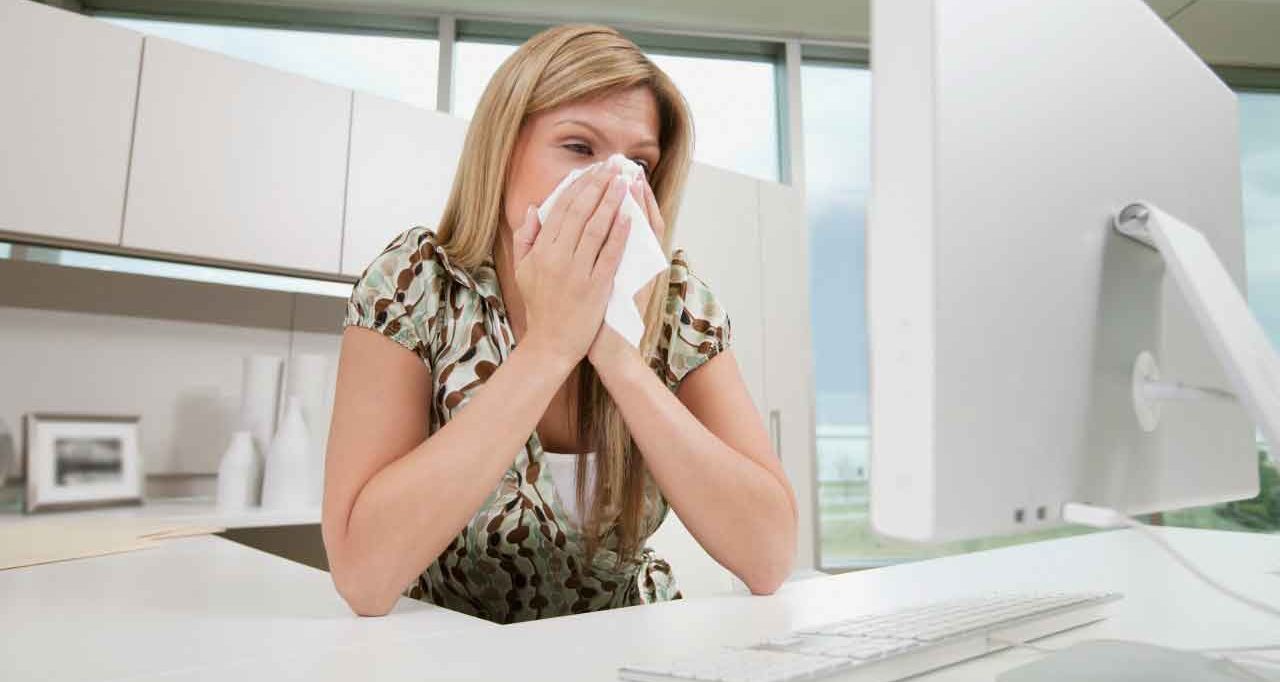When to Stay Home from Work

Even health professionals are often guilty of working sick. Here's when to stay home from work if you have a cold or flu, and why you should.
Your head is throbbing, you’re running a fever, and your throat is raw, but work and all its responsibilities won’t vanish just because you’ve got a cold or the flu. Should you stoically pack up your briefcase and head to the office, or throw in the tissue and stay home?
About 70 percent of workers admitted they’ve worked when they were feeling under the weather, according to a survey by the staffing firm OfficeTeam. Even health professionals are often guilty of going to work sick, a practice that could put their patients’ health in jeopardy.
Many health experts will tell you it’s better to risk your boss’ ire than to risk spreading your germs around the office. “I can’t stress it enough — going to work while sick is bad for you and potentially worse for your colleagues. Staying home to rest will help you to manage your illness and prevent others from getting infected,” said Scott Wooder, MD, president of the Ontario Medical Association in Canada.
Germs introduced to an office by a sick worker can spread with a single cough, sneeze, or touch. In one study, researchers placed a common virus on a single doorknob. Within two hours, that virus could be detected on 40 to 60 percent of workers at the facility.
When to stay home from work
Be kind to your coworkers and stay home when you’re contagious. With a cold or flu, you can pass your germs along from one or two days before symptoms appear to two to seven days after you start feeling sick. Signs you’re contagious include a fever above 100.3 degrees Fahrenheit, chills, and body aches.
Staying home is also kinder to yourself. By toughing it out at work, you won’t give your body a chance to rest, which will drag out your illness even longer. Plus, it’s hard to be a productive member of the team when you can barely lift your head from the desk.
Going back to work
Even if you feel better, take a few extra precautions to avoid spreading any lingering germs to your coworkers when you return to the office. Wash your hands throughout the day. Wipe down any shared surfaces — such as phones, computer keyboards and mice, door handles, and chair arms — with a disinfectant wipe after you use them. If you have to sneeze or cough, do so into a tissue or your sleeve — not into the air.
Keep kids home from school
When your child is the one who’s sick, you face the double concern of missing work and having your child miss school. “Being a parent is a juggling act, but throw in a child being home sick from school and the delicate balance topples. Many parents ask: When is it important to keep my child home from school and when should I send them?” said Hannah Chow-Johnson, MD, pediatrician at Loyola University Health System and assistant professor in the Department of Pediatrics at Loyola University Chicago Stritch School of Medicine.
Use your child’s symptoms as a guide. A fever higher than 100 degrees is always justification for kids to stay home. In fact, many schools have policies prohibiting children from returning until they’ve been fever-free for at least 24 hours. “This is a good policy. If a child has fever that means he or she needs rest. The fever itself is not contagious but it causes the body to slow down to rest and recuperate,” Chow said.
A cough usually isn’t worth staying home over, unless it’s hacking or continuous. But do send your child to school with the instruction to cough into a sleeve or tissue and wash his or her hands often. With a sore throat, as long as it’s not strep, your child can return to school if she feels comfortable enough.
Updated:
March 30, 2020
Reviewed By:
Janet O’Dell, RN